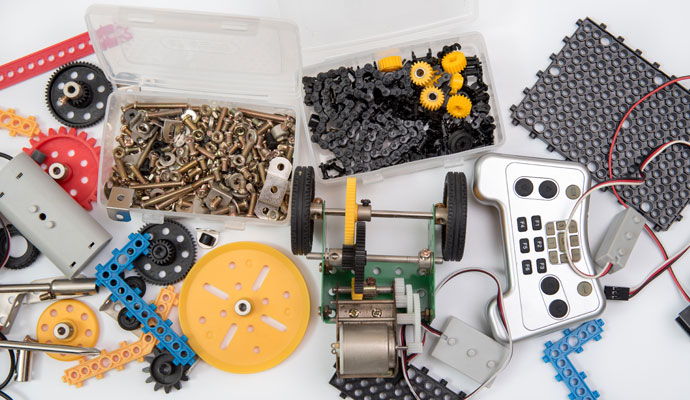Seeking Scale in the Maker Movement
Mark Hatch, the CEO of TechShop, is betting that the new wave of high-tech DIY will bolster innovation and the growth of this nascent industry.
(originally published by Booz & Company)I cut my journalistic teeth during the heyday of total quality management, the improvement method that fostered a much-needed renaissance in the U.S. manufacturing sector in the late 1980s and early 1990s. Unfortunately, said renaissance was short-lived—globalization and offshoring made it more cost-effective to produce all manner of goods in developing nations, and the number of U.S.-made products dwindled. So it’s been something of a delight to watch the “maker” movement in its early stages of development.
We’ve covered this emerging trend in s+b several times. In 2011, Tom Igoe and Catarina Mota wrote about digital fabrication technology and the effect it might have on manufacturing. This past summer, Tom also reviewed Makers: The New Industrial Revolution (Crown Business, 2012), by former Wired editor-in-chief Chris Anderson, which as the title suggests was highly optimistic in its assessment of the maker movement. On the flip side, the just-released Winter issue of s+b includes a warning from Tim Laseter and Jeremy Hutchinson-Krupat that we probably are not anywhere near a tipping point in at least one of the innovations that is enabling DIY manufacturing—3D printing.
This week, I’d add Mark Hatch’s new book, The Maker Movement Manifesto: Rules for Innovation in the New World of Crafter, Hackers, and Tinkerers (McGraw-Hill, 2013), to the mix. Much like Anderson, Hatch is predicting that the maker movement will be—as variety show host Ed Sullivan used to say—a “really big shew.” Of course, you have to take that with a grain or two of salt: Hatch has a really big stake in the future of the maker movement. He is the CEO of TechShop, a small chain of maker spaces—shops where DIYers get access to all manner of high-tech equipment and machinery in return for a monthly membership fee.
There was one thing in the book, however, that surprised me: Major corporations are beginning to underwrite maker spaces. Ford funded the development of a TechShop in Detroit in 2011, as a way of bolstering innovation. The company “bundled a TechShop membership into an award pool that Ford gives to employees who submit quality patent ideas,” according to Hatch, and got a 50 percent increase in the number of such ideas. Since then, a couple of other companies have jumped on board: GE asked TechShop to help it set up a maker space in Chicago, and BMW is funding a space with TechShop outside Munich.
In terms of the future of the maker movement, this seems like an especially newsworthy development. Sure, there are a number of individual makers who have built successful small businesses. But for the maker movement to reach scale, nothing will help as much as the participation of big companies. Such companies can provide the capital needed to underwrite maker spaces, the means to commercialize new innovations, and avenues to market.




